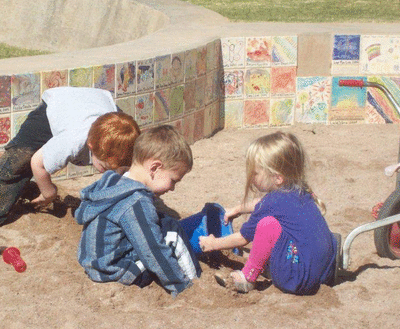Philosophy
We believe that young children are active learners: that they continually construct knowledge as they repeatedly interact with people, ideas and materials in their environment (Piaget, ’52). Children learn though constructive play and thus the teacher’s role is often a play partner extending and enhancing the child’s play and interests. We welcome the fact that young children possess diverse ideas, values and approaches to learning. Therefore, we provide a nurturing environment that encourages initiative, experimentation, problem solving, and social-interaction, while recognizing and valuing individual differences.

Our curriculum is based on the “best practice” (Bredekamp & Rosegrant, 1992), knowledge of theory, research, and practice about how children grow and learn, with attention given to the individual needs and interests of the children and families we serve.
By integrating content areas of the curriculum and designing projects based on the interests of individual children and the group, we provide opportunities for children to reach their potential in the following domains: social, emotional, physical, intellectual, creative arts, and language.
The classrooms are organized into specialized interest areas (dramatic play, creative arts and construction), and during work time children are able to work in each of the three classrooms. We believe children learn from each other and, therefore, we mix together children of different ages, 3, 4 and 5 year olds in each classroom.
Parents are encouraged to be involved with their child’s education. We believe that a parent is the child’s first teacher and, therefore, the insight they have of their child and their culture are very important for us to know and understand in order to best serve the child.


